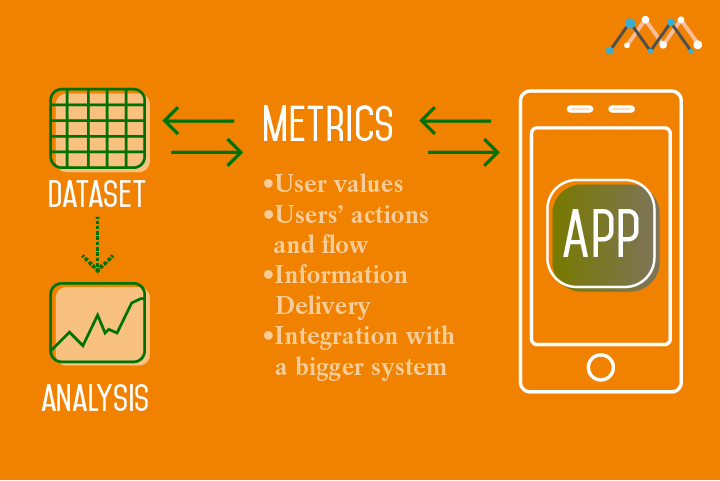Metrics for mobile apps Part 2: customized
In case you haven’t read part 1. fundamental metrics: http://www.multimension.com/2014/09/25/metrics-for-mobile-apps-part-1-fundamentals/
Our previous post talked about generic metrics for mobile apps, but customized metrics are needed to measure an app’s value in depth. These metrics are usually invented to track specific functionality, but here are common concepts:
- User values: Knowing the value customers get from the app can identify successful areas and parts that need improvement. How you quantify “value” depends on the service. A music app may value time spent listening to content, a retail app would value purchases, a game may track in-game currency.
- Users’ actions and flow: By making buttons and taps trackable, it’s possible to simulate users’ behavior in an app. This process will be helpful to optimize the app for specific actions such as information delivery or transactions.
- Information delivery: Some apps use quizzes, games, surveys or simulations to check if information is being properly delivered to the user. These tools allow app creators to collect data on problem areas in their app. If users consistently get a question wrong, creators know that content of the topic needs to be improved.
- Integration with a bigger system: A lot of apps are designed to solve problems or challenges in a specified sectors. An app is more likely to be successful when its objectives are in line with the bigger organizations’ (business) direction. For example, if a healthcare app can solve a problem and can be integrated into big hospital systems, there’s a better chance for the app’s success.
We’ve finished development of our app project partnered with the University of Toronto. The apps will go through field testing to test out its efficacy (We can’t talk too much until the field testing is done:). We will keep you posted on things we’re learning about our apps in a few months! Again, we can’t talk about it yet, but lots of customized metrics were applied for these unique apps.
As smart people say, it’s taking actions not tracking data that creates impact. We will reflect insight from our field study and testing to make the project better and better.

